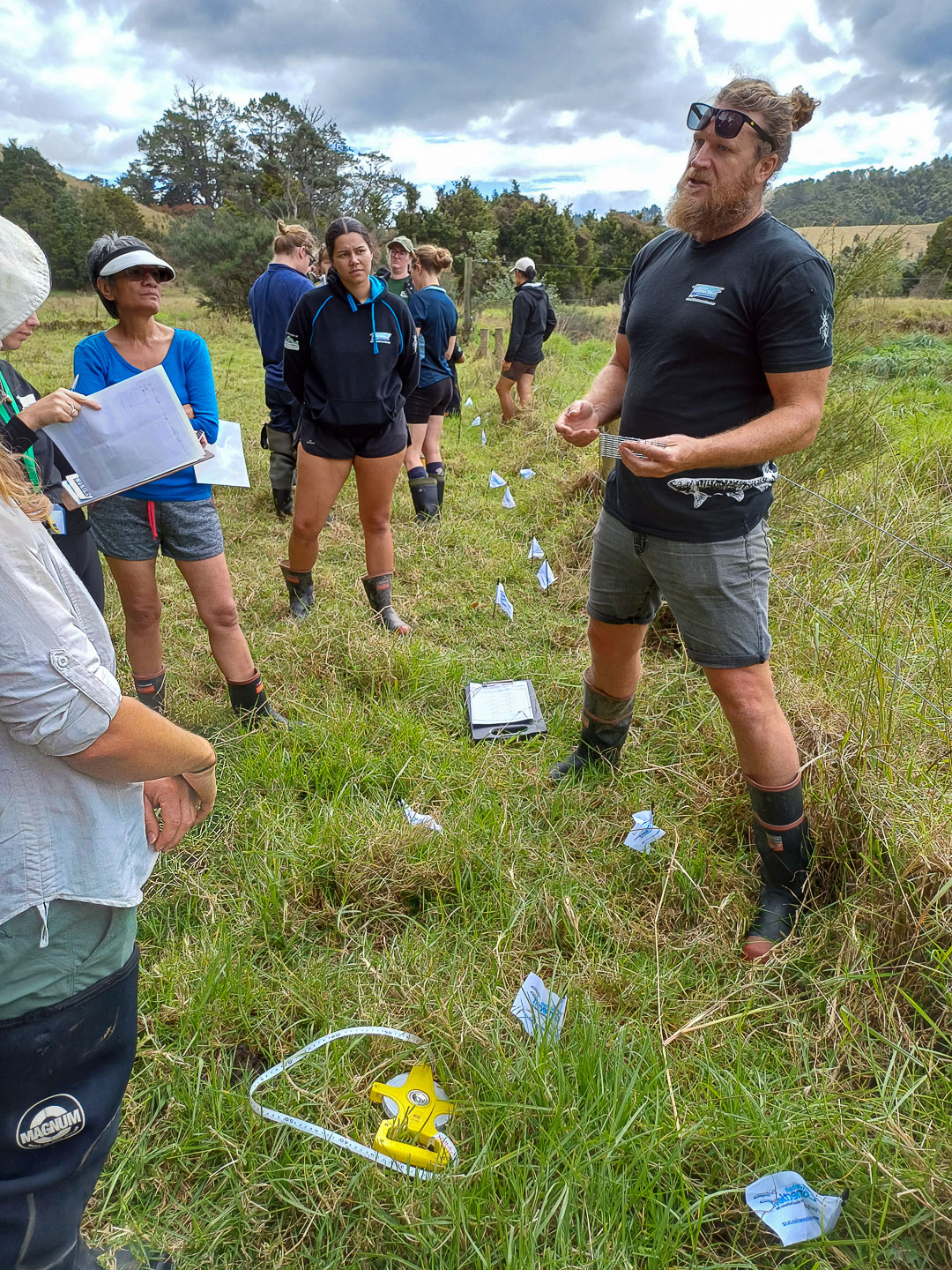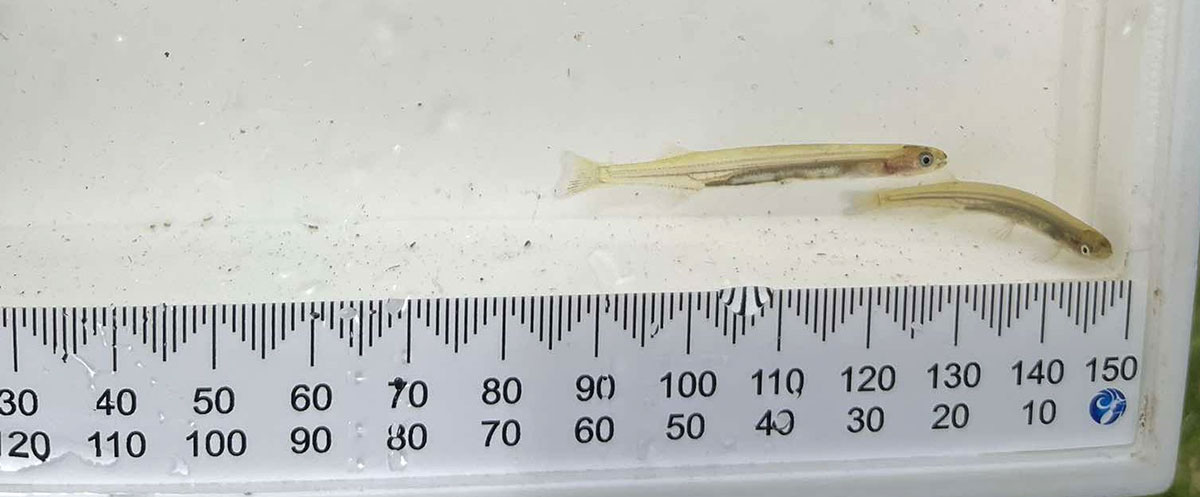Story
Īnanga conservation efforts gaining momentum
The Northland Īnanga Spawning Habitat Restoration Project (NĪSHRP), delivered by the Mountains to Sea Conservation Trust, has been making significant strides in preserving the habitat of the native freshwater fish, Īnanga (Galaxias maculatus).
The project received funding in 2023 from the Northland Regional Council’s Biofund, a part of the wider Environment Fund programme aimed at supporting pest control on private land in Te Taitokerau.
Īnanga, a fish of cultural significance, faces numerous threats including habitat loss, water quality degradation, and predation by rats and mice.
The NĪSHRP aims to locate, protect, and enhance spawning habitats for Īnanga across 25 awa (rivers), from the Waipū River and its tributaries up to the rohe of Ngāti Kuri. This 3.5-year project, sponsored by the Ministry for the Environment (MFE), collaborates with the Department of Conservation (DOC) and NRC to achieve its goals.
Nic Naysmith, the NĪSHRP Project Manager at Mountains to Sea, brings a wealth of experience as a scientist who has spent his life in and around rivers and oceans.
His passion for the project is evident as he discusses the unique lifecycle of Īnanga. These fish lay their eggs on land, with their spawning triggered by the phases of the moon. They spawn in areas where seawater meets freshwater, known as the saltwater wedge, during the high tides of the full and new moon phases.
Unfortunately, changes in land use have led to Īnanga spawning in unsuitable habitats. The dramatic loss of wetlands in Te Taitokerau – 97% over the last 150 years – has forced Īnanga to spawn on main river reaches without the protection of wetland grasses, leaving their eggs vulnerable to predators like rats and mice.
Part of the NĪSHRP is identifying suitable spawning sites and protecting them through fencing and riparian planting of grasses and sedges. These efforts not only benefit Īnanga but also enhance the entire ecosystem by reducing sediment, absorbing nitrates, and increasing biodiversity.
Predation is a significant threat to Īnanga eggs, which are delicious easy pickings for rats and mice. Effective trapping is essential to protect these eggs, and the funding from NRC’s Biofund has been instrumental in providing traps, baits, and tracking tunnels. Expertise from NRC staff, such as Pete Graham, has also been invaluable.
Nic explains that the Biofund enabled them to implement pest protection measures in the second and third years of the project, which was critical to its success.

Nic Naysmith shares his experience at a recent training Wananga in Whananaki.
As the NĪSHRP approaches its conclusion in June 2025, Nic and his team are actively seeking additional funding to continue their vital work. The project has not only focused on protecting Īnanga and wetland ecosystems but also on building community capabilities to ensure its ongoing success.
Community support for the project has been “outstanding”, with a huge amount of community engagement. NĪSHRP’s first hapū partner was Patuharakeke, and they now manage the trap lines on the Ruakākā river. Ngāti Manu at Karetu, Ngāti Kuri in the far north and the Whirinaki Trust have all collaborated and contributed.
To organisations thinking of applying to the Biofund, “go for it” is Nic’s advice.
“The process was simple, Pete has been amazing to deal with and the funding and input has been very effective for our project and for getting a better result for īnanga. It was a no-brainer for us”.
The Northland Īnanga Spawning Habitat Restoration Project stands as a testament to what can be achieved through community collaboration and dedicated conservation efforts. With continued support and funding, the hope is that this vital work will carry on, ensuring a brighter future for Īnanga and the ecosystems they inhabit.

Īnanga during freshwater monitoring.
For more details about NĪSHRP contact:
Nic Naysmith - Northland Īnanga Spawning Habitat Restoration Project Manager & National Īnanga Spawning Programme National Coordinator
Mountains to Sea Conservation Trust
P: 0276419388 | E: nicholas@mountainstosea.org.nz | W: www.mountainstosea.org.nz
